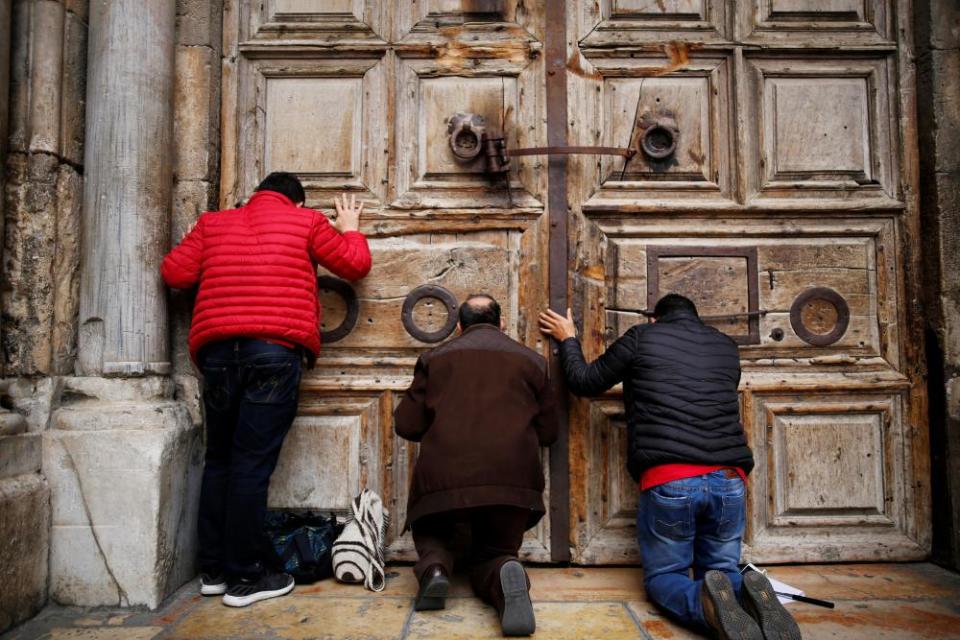Jerusalem's Holy Sepulchre church closes in tax protest

The heads of the Church of the Holy Sepulchre, considered the holiest site in Christianity, have shuttered its doors to protest against a new tax and a piece of Israeli legislation that will allow the government to confiscate church land.
In the rare step not seen for close to three decades, church leaders accused Israel of a “systematic and unprecedented attack against Christians in the Holy Land”.
Greek Orthodox, Armenian Apostolic and Catholic leaders, who jointly manage the vast site in Jerusalem’s Old City, complained of plans by the city’s municipality to modify a religious tax exemption that they said was “an attempt to weaken the Christian presence in Jerusalem”.
Separately, they complained of a “discriminatory and racist bill” being considered by Israeli legislators that would allow church property to be claimed by the state.
“This abhorrent bill is set to advance today in a meeting of a ministerial committee, which if approved would make the expropriation of the lands of churches possible,” the leaders said in a statement on Sunday. “This reminds us all of laws of a similar nature, which were enacted against the Jews during dark periods in Europe.”

They added: “As a measure of protest, we decided to take this unprecedented step of closure of the Church of the Holy Sepulchre.”
It was not immediately clear how long the church, the assumed site of Jesus’s crucifixion, burial and resurrection, would remain shut.
The church, which attracts thousands of pilgrims from around the world, has not closed for political reasons since 1900 when its large wooden doors were fastened for a day in symbolic objection to the presence of Jewish settlers who moved into a nearby Christian hospice.
Proponents of the new land bill say it will limit the ability of the church to sell its land to private buyers, which may lead homeowners living there into uncertainty about their leases.
Jerusalem’s municipality says the tax exemption has been wrongly applied to church-owned commercial properties, such as restaurants and hotels, that should not be excused as they are not places of worship.

 Yahoo News
Yahoo News 
